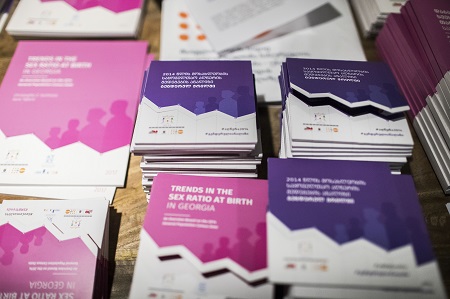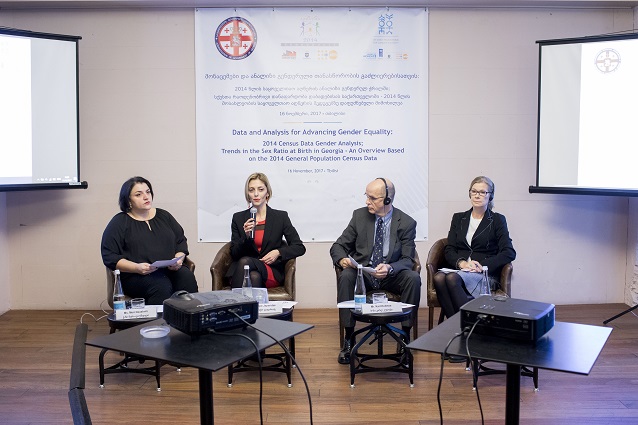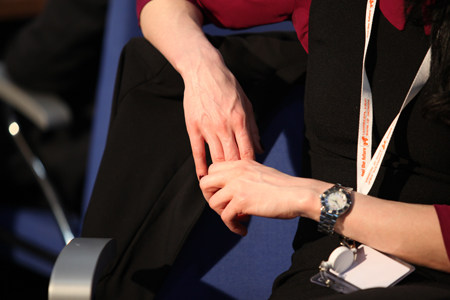Census analyses: Preference for sons, birth masculinity still evident in Georgia

"Like its eastern neighbors Armenia and Azerbaijan, Georgia has long been characterised by inordinate levels of birth masculinity mirrored by a skewed Sex Ratio at Birth (SRB), the recent analysis of the 2014 general population census data says.
The subsequent fertility of women without any male children remains significantly higher than that of other women. After two or more female births, sonless couples are twice as likely as couples who already have a son to have an additional child”, the report says.
It is therefore of no surprise that the measurement of the sex ratio at birth before the 2014 census points to the same type of gender bias”, it further adds.
Inter-agency Commission on Gender Equality, Violence against Women and Domestic Violence, National Statistics Office of Georgia and United Nations Populations Fund (UNFPA) Georgia Country Office presented the findings of 2014 Population Census Data In-depth Analysis yesterday.
According to the report, "a series of regional, cultural, and socioeconomic indicators have been used to delineate the main factors behind high or low son preference and birth masculinity”.
2014 Census Data In-depth Analysis is of particular importance to the development of human rights-based policies. The in-depth analysis of Census data provides evidence for policy formulation and planning with special focus on the areas such as sexual and reproductive health and rights, adolescents and youth, aging, population dynamics, and gender”, UNFPA Georgia says.
The analyses also says that according to 2010-2014 the ratio of newborn baby girls to baby boys in Georgia is 100 to 109 on average, while the maximum normal biological level of sex ratio at birth can be 100/106. The skewed sex ratio considerably increases in case of the third child or more and reaches 100/140.

The analysis of the 2014 general population census data has been introduced yesterday. Photo by UNFPA Georgia
To address the issue of gender bias in Georgia the authors of the report recommend:
- Supporting sociological and demographic research on family dynamics in relation to son preference and masculinity
- Reconciling traditional family values with gender equity and ensure that reproductive choices do not reinforce male-oriented bias within the family
- Focusing attention on regions and communities in the country where the decline in sex selection has been slower and ensure that they join the mainstream in the coming decade
- Addressing various forms of gender discrimination, most notably in relation to property registration, gender violence, marriage and reproductive choices, and inheritance
- Exploring ways forward regarding women’s participation in social, economic, political spheres within the framework of the SDGs
 Tweet
Tweet  Share
Share







